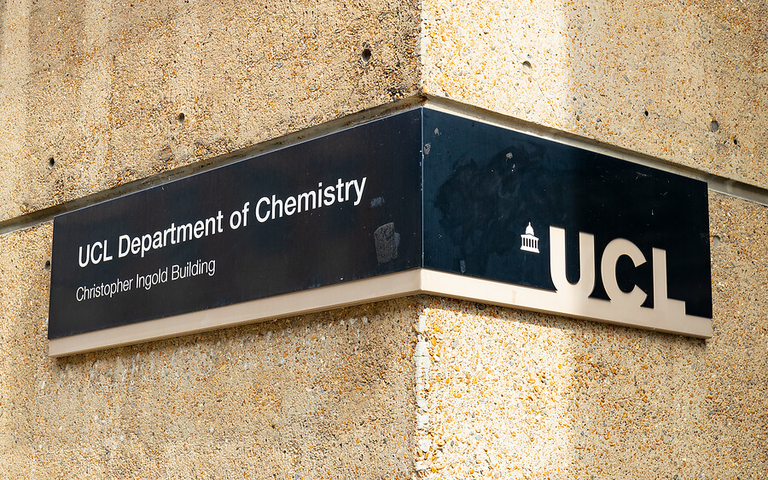Chemical Sustainability Research Theme Seminar
09 February 2022, 1:00 pm–2:00 pm

Thermogalvanic devices: Using redox chemistry and entropy to convert waste heat into electricity
Event Information
Open to
- UCL staff | UCL students
Availability
- Yes
Organiser
-
Helen Hailes
Location
-
Virtual20 Gordon StLondonWC1H 0AJ
Exploiting chemical enthalpy (combustion, batteries, fuel cells, etc.) has been behind most of humanity’s technological progress. However, most activities also waste a significant fraction of this energy, typically as waste heat. Exploiting entropy provides a potential route to recover some of this waste.
Thermoelectric devices are solid state devices that covert a temperature gradient into electricity. Thermogalvanic devices are their liquid-state, redox chemistry analogue’s, and are a recent topic of intensive investigation. They are composed of two electrodes and a common electrolyte containing two redox states (e.g. Fe(II) and Fe(III)) that can convert a temperature gradient cleanly and simply into a flow electrical current via the entropy difference between the redox states.
This talk will summarise aspects of our research in this area, primarily our focus upon the fundamentals,[1] green & sustainable aspects[2] and application of these systems,[3] in aqueous,[1-3] gelled,[4] and ionic liquid [5] forms.
[1] Sustainable Energy & Fuels, 2020, 4, 3388-3399; Cell Reports Physical Science, 2021, 2, 100510
[2] Green Chemistry, 2020, 22, 6062-6074; Green Chemistry, 2021, 23, 8901-8915
[3] WO/2020/082028, 2019; Advanced Energy Materials, 2020, 10, 2002539
[4] Electrochimica Acta, 2017, 225, 482-492; ACS Applied Energy Materials, 2021, 4, 11204-11214
[5] Chemical Communications, 2016, 52, 745-748; Physical Chemistry Chemical Physics, 2017, 19, 24255-24263.
About the Speaker
Dr Leigh Aldous
at Kings College London
 Close
Close

